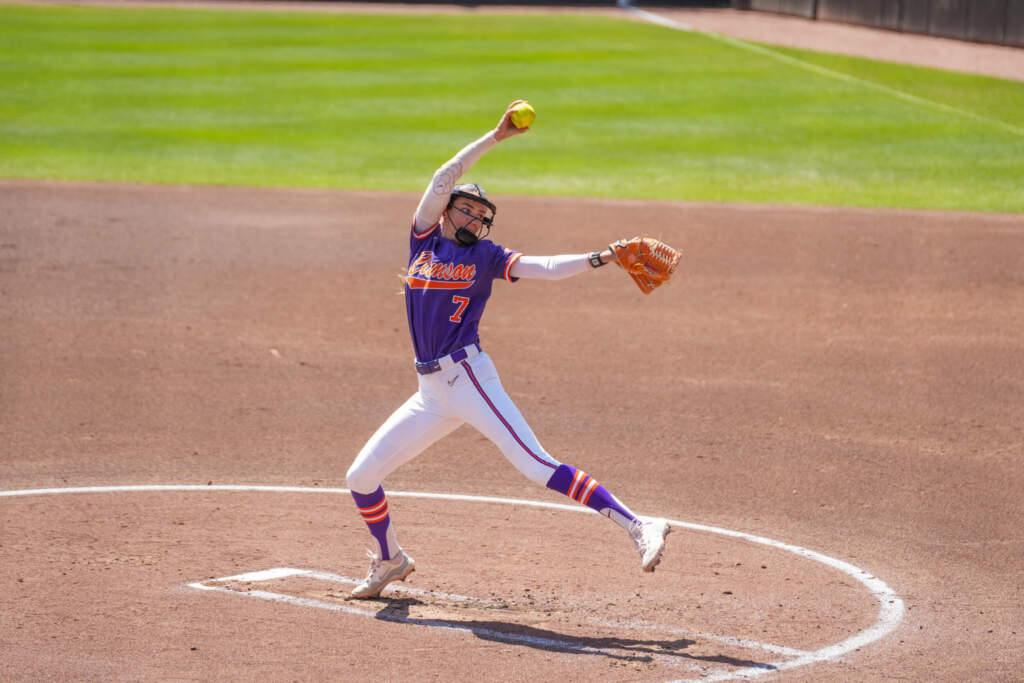DRUG/SUBSTANCE ABUSE; EDUCATION AND COUNSELING POLICY AND PROGRAM
Philosophy of ProgramPurpose of the ProgramDrug Education PolicyDrug TestingDrug Testing for CauseResults of Drug Testing/ConfidentialityProhibited SubstancesProcedural GuidelinesSelf-Reporting of Drug Use Classification of a Positive Drug TestAthletic Department’s Response to Drug/Substance Use and Abuse Possession of Steroids and Illegal Drugs Alcohol PolicyDiscipline and Appeal ProcessReporting
Philosophy The Clemson University Athletic Department, its coaching staff, physicians, athletics trainers, and administrators strongly believe that the use of illegal drugs, abuse of prescription drugs, or the abuse of alcohol are detrimental to the physical and mental well being of its student-athletes. Improper drug use poses a risk of health and safety to the student-athlete, is against the law, and a violation of team rules. Therefore, the Athletic Department has implemented a mandatory program of drug testing, education, and counseling/rehabilitation efforts to protect the health and safety of the student-athletes and students associated with the Clemson Athletic Department.
Purpose of the Program The purpose of the Clemson Athletic Department drug testing, education and counseling program is to inform student-athletes of the dangers associated with drug and alcohol abuse. The central goal of the Clemson Athletic Department drug policy is to prevent improper drug and alcohol use in athletics and, where detected, to eliminate it, preferably through medical treatment and education. Specific goals of the Clemson Athletic Department program are:
- To educate individuals of the dangers associated with drug and alcohol use and abuse;
- To identify through random testing those individuals who may be involved in illegal drug or alcohol abuse;
- To recommend and provide confidential counseling for those individuals with drug related problems; and,
- To provide corrective actions for those individuals with drug and alcohol related problems.
Drug Education Policy The Athletic Department considers education to be an important part of its drug policy. The NCAA and Clemson Athletic Department drug policies and testing guidelines will be reviewed at a mandatory orientation for all student-athletes at the beginning of each year. Each student-athlete will receive written copies of the policies and testing guidelines and will sign consent forms for drug testing for both organizations.
Regular educational in-services will be offered to both student-athletes and athletics staff throughout the year. These programs will be offered in the areas of drug abuse prevention, drug and alcohol education and drug testing. All Athletic Department personnel, particularly head coaches, will cooperate in making sufficient time available during team meetings for any Athletic Department sponsored lectures.
Drug Testing All teams are screened for drug use as a group prior to the season, on a random basis throughout the year and at the request of the head coach and/or other Athletic Department officials. In addition, the NCAA conducts random tests and may test at championship events. Cheerleaders, mascots, student athletics trainers, student managers and student video staff may be included in the testing program.
Drug Testing for Cause In addition to random testing, student-athletes are also subject to drug testing if there is cause to believe that they may be using illegal drugs. Circumstances which constitute cause include, but are not limited to, the following: current or past involvement with the criminal justice system for drug-related activities, prior treatment for drug problems, admission of a current drug problem, prior positive test for any illegal drugs or a pattern of aberrant behavior. Any coach, athletics administrator or athletics staff member who has cause for concern may request that a student undergo testing. These requests may be submitted to the athletics director or the associate athletics director for administration. A record of requests made and their disposition will be on file with the associate athletics director for administration.
Results of Drug Testing/Confidentiality Maintaining confidentiality and protection of the rights of the student-athlete is a critical factor in drug testing.
Under no circumstances will any Athletic Department personnel or any individual associated with the drug testing program be permitted to disclose publicly or allude publicly to any information acquired in their capacity, whether or not it relates to identified students, individual teams, or the Athletic Department. Any violation of this confidentiality clause may be grounds for disciplinary action, including dismissal from employment. Furthermore, unauthorized disclosures of certain confidential information may violate state and/or federal laws and could subject the individual to criminal prosecution.
Prohibited Substances Individuals are prohibited from use, purchase, possession, manufacture, distribution and/or sale or the attempted use, purchase, possession, manufacture, distribution and/or sale or aiding and abetting the use, purchase, possession, manufacture, distribution and/or sale by any of the following: Amphetamines Opiates Barbiturates Phencyclidine (PCP) Benzodoazephines Steroids Cannabinoids (Marijuana) NCAA Banned Drugs Cocaine Metabolite
Procedural Guidelines Each year a drug presentation will outline the dangers of drug use and the department’s testing and education programs. The drug testing procedures to be followed will be explained in detail at our mandatory orientations.
All student-athletes, cheerleaders, mascots, student athletic trainers student equipment managers and student video staff will be required to sign a consent form giving the Athletic Department permission to test the student at any time.
Failure or refusal to appear for a scheduled drug test will be treated as a positive drug test.
Certified lab technicians will collect urine and/or hair samples. Each individual sample will be coded to provide confidentiality. Positive tests will be repeated and confirmed. If a student-athlete has a positive drug test, repeat drug testing will be performed as often as deemed necessary.
Self-Reporting of Drug Use If a student-athlete makes the decision to self report this behavior, a positive drug test will not be charged against the student-athlete. Self-referrals play a significant role in educational aspect of our program for those student-athletes who are honest and attempting to adhere to the Athletic Department drug policy. It must be clearly understood that self-referrals are a one-time opportunity.
Classification of a Positive Drug Test Specimens are examined by an independent testing agency. All specimens that show the presence of a prohibited substance are re-tested. A positive drug test for marijuana occurs when a student-athlete is in excess of fifteen (15) nanograms. These levels are the same as a positive test for the NCAA.
Mandatory counseling can be recommended in situations where there is a presence of any illegal drug or at the discretion of the associate athletics director for administration, head coach, or athletics director.
A student-athlete having a positive test will be tested as often as is deemed necessary. Testing is quantified in order to ascertain the exact amount of the prohibited substance in the student-athlete’s system. The student will continue to test on a regular basis until such time as the student tests negative for the prohibited substances. If during the repeat testing process the test contains an increased amount of prohibited substance, this will constitute another offense, and the student will follow the remedial guidelines for the second or third offense, as applicable.
Athletic Department’s Response to Drug/Substance Use and Abuse: Positive Test Results, Admission of Guilt, and/or Conviction by any Legal Authorities. The following are conditions that are implicit to the drug testing policy:
- A student-athlete’s testing results will be cumulative throughout his/her career.
- Alcohol is considered as part of this process.
- If illegal alcohol or drug use is confirmed outside the testing program, it will constitute an offense for the student-athlete.
- There may be compelling reasons that would warrant a head coach recommending outright suspension and/or reduction or withdrawal of scholarship. If so, the head coach would be required to present such reasons in writing to the athletics director for consideration, before proceeding.
- Community service work assigned to an athlete will run concurrently with any community service work hours assigned by the university, federal, state or local legal system for the same offense.
- Any student-athlete failing to follow-through on assigned counseling, community service, and/or other sanctions as a result of their drug/alcohol offense will be charged with a further offense.
- A positive test result or admission to using drugs or alcohol and the plan for dealing with these issues may impact the reduction or withdrawal of scholarships. The issue of playing time or being a member of the team is the sole decision of the head coach in agreement with the athletics director.
First Offense A positive test result or admission of use (drugs or alcohol) will have the following consequences:
- Student-athlete will participate in a conference telephone call with coach, Director of Performance, and parent(s) or legal guardian(s) at which time the consequences of a positive test result will be reviewed.
- Student-athlete will be required to attend mandatory evaluation and counseling sessions.
- Student-athlete will be required to perform community service work minimum of 15 hours to a maximum of 40 hours.
- Student-athlete will be subject to frequent retesting as determined by athletics administration and/or head coach.
Second Offense Same procedure as outlined above will be implemented. Additionally, the student-athlete will have the following consequences:
- Student-athlete will be required to perform community service work for a minimum of 30 hours.
Third Offense If a third positive test or admission of guilt occurs, it must be assumed that the student-athlete has a very significant problem or has made some conscious value judgment as to their behavior. The third offense will dictate a dismissal from the team and cancellation of financial aid.
Possession of Steroids and Illegal Drugs The unauthorized possession of any steroid and the possession of any illegal drug by a student-athlete will be treated as a positive test result. This action will be in addition to actions taken by law enforcement and the institution.
Alcohol Policy The Athletic Department endorses a healthy lifestyle and considers the illegal use and/or the abuse of alcohol to also be a concern for student-athletes. Those who repeatedly test positive or admit to the head coach or other athletics administrators that they abuse alcohol, and/or those convicted by any legal authority will be subject to the same mandatory three-step plan as outlined above.
Discipline and the Appeal Process Any student-athlete who violates the drug and alcohol policy is subject to the corrective actions and guidelines within this policy. Any student disciplined under the drug policy has the right to appeal and to a hearing before the vice-president for student affairs. A request for appeal must be made in writing within five calendar days after notification of discipline.
Students are reminded that many of the drugs and most of the behaviors addressed in the drug policy are illegal. Conduct involving illegal drug use or abuse may subject a student-athlete to criminal prosecution and/or disciplinary action pursuant to the university’s student judicial code.
Association with drug-related activity in a manner detrimental to the best interests of Clemson Athletic Department is strictly forbidden. Moreover, involvement in the criminal justice system for a drug-related offense will be taken into account in disciplinary action imposed by the Athletic Department. Such involvement may also serve as an independent basis for discipline, outside the drug policies outlined above. ReportingThe Performance Director will be informed of those violating the drug/substance abuse policy, and subsequently manage the educational process and enforcement of sanctions when necessary. The president of the university will receive reports annually that summarize the results of the drug-testing program. Individuals are not identified in these reports.
 Syracuse
Syracuse 
 Virginia
Virginia  Florida State
Florida State  Wake Forest
Wake Forest 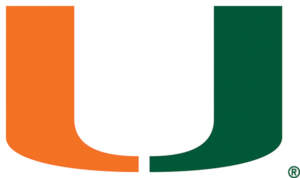 Miami (Fla.)
Miami (Fla.)  Alabama
Alabama 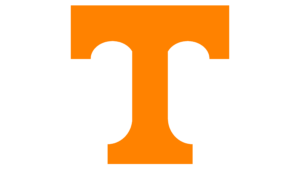 Tennessee
Tennessee  Charlotte
Charlotte  USC Upstate
USC Upstate 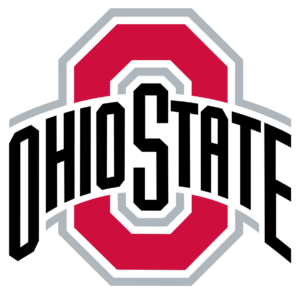 Ohio State
Ohio State  Georgia State`
Georgia State`  Ohio University
Ohio University  Virginia Tech
Virginia Tech  Indiana
Indiana  Tiger Classic
Tiger Classic  South Carolina
South Carolina 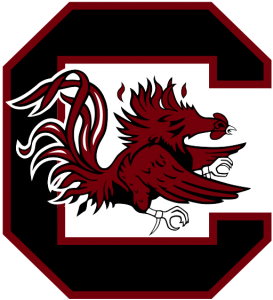 South Carolina
South Carolina  Campbell
Campbell  UAB
UAB  East Tennessee State
East Tennessee State  LSU
LSU  South Carolina
South Carolina  App State
App State  North Carolina A&T
North Carolina A&T  Charlotte
Charlotte 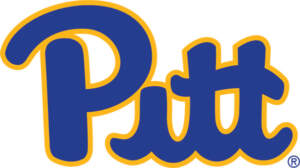 Pittsburgh
Pittsburgh  Troy
Troy  Georgia
Georgia  Cougar Classic
Cougar Classic  Georgia
Georgia  VCU
VCU  Stanford
Stanford  Elon
Elon 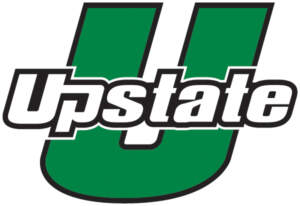 USC Upstate
USC Upstate  Georgia Tech
Georgia Tech  Wofford
Wofford  SMU
SMU 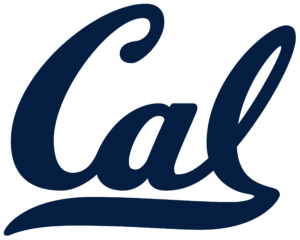 California
California  Queens
Queens  Georgetown
Georgetown  Norfolk State
Norfolk State 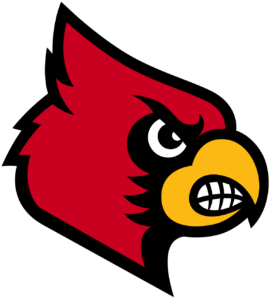 Louisville
Louisville  Charleston Southern
Charleston Southern  Mason Rudolph Championship
Mason Rudolph Championship 

